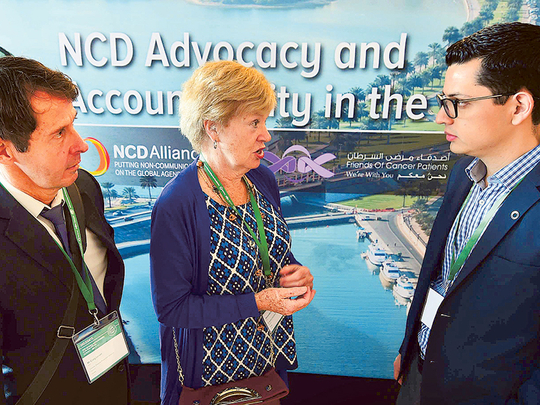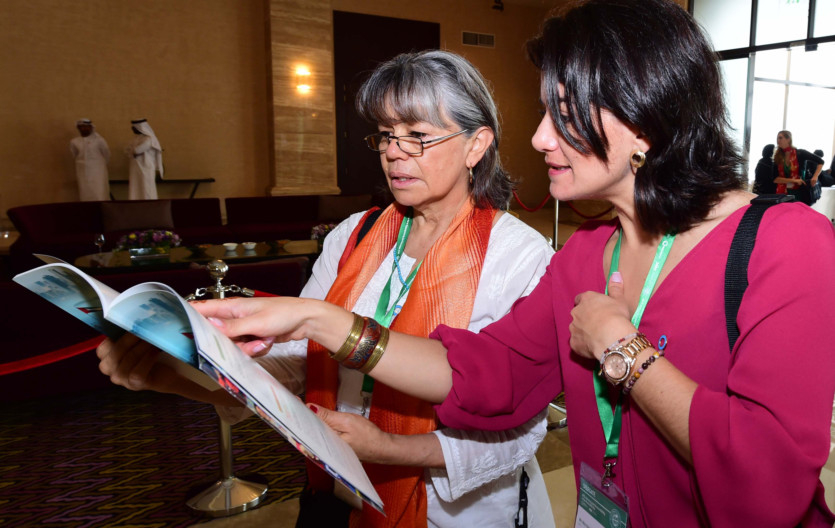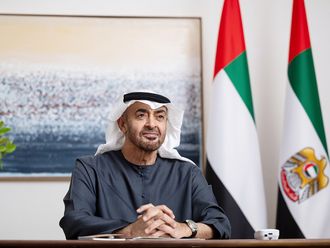
Sharjah: Goals to reduce preventable deaths caused by Non-Communicable Diseases (NDC) by 25 per cent are feasible but “it can only be done if proper attention is paid to the accountability process”, Sir George Alleyne, Director Emeritus of the Pan American Health Organisation (PAHO), said on Sunday at the NCD Alliance Global Forum in Sharjah.
Sir George said that civil society holds a role in pushing governments to produce results, to insist on them doing what they said they would do. He said the goals, set by the World health Authority (WHO) Global Action Plan to reduce preventable NDC deaths, can be achieved, but results were contingent on the actions of civil society.
Defined as a medical condition or disease that is non-transmittable, NCDs may include autoimmune diseases, heart diseases, stroke, cancers, diabetes, and chronic kidney diseases. Although NCDs can refer to chronic diseases which progress slowly over a long period of time, some NCDs can result in rapid death. NCDs are distinguished more for their non-transmittable quality rather than their duration.
“These are the imperatives of accountability that civil society follows to ensure the commitments made by governments are actionable and produce results,” he said at the Al Jawaher Reception and Convention Centre. “We must insist on it, very seldom is there independent verification of results of government policy and if civil society is going to monitor this, then they need to insist on independent verification. There must also be presentation and correction of results and, importantly, transparency. This should not be done behind closed doors. These are the imperatives of accountability. If governments say they are going to do this, or do that, then they should be held accountable to that.”
Douglas Webb, senior adviser, United Nations Development Programme, said that when looking at accountability of government departments such as the department of health, accountability can depend on them knowing what they are supposed to be doing and ensuring they have the capacity to do it as this is not always the case as the resources, he said, are not there.
Webb added, “In holding governments to account, we need to think about what good governance is. We all have a right to health and one of the things we do as an organisation is to negotiate with other parts of society whose priorities are not public health. What governments need to do is put a firewall between public health and those whose priorities are not public health — that is what good governance is.”
Maisha Hutton, Executive Director, Healthy Caribbean Coalition (HCC), Barbados, said the focus of their organisation was on strengthening alliances and capacity building in order to have a targeted approach to ensuring accountability. “We build capacity around information generation, ensuring we capture relevant information. And, secondly, once we have the information, we hold workshops specifically tailored around identifying needs and priorities as a result of the data. We have produced reports that are under consideration by the government on alcohol policy, tobacco regulation and now we are working on childhood obesity recommendations, so we are very pleased with those successes.”
Dr Mary Assunta, Senior Policy Development Adviser, Southeast Asia Tobacco Control Alliance (SEATCA), Australia, said the organisation worked across eight countries and organised regional workshops to ensure they get first-hand information on where governments are. “We issue guidelines with recommendations for parties in our region who have difficulty in implementation and we also provide a status report on what the government is implementing with comparative score rankings,” she said.
“The government doesn’t like this as they don’t want to be compared with others who may be doing better but it is important to show where progress has been made and what needs to be strengthened. We lobby for illustrative warnings about tobacco on packaging, insisting on prominent pictorial warnings. We also monitor the food and beverage industry to see what it is saying to governments.”
Princess Dina Mired, Director-General, King Hussain Cancer Foundation, Honorary Chairperson of the Jordan Breast Cancer Programme, Jordan, said, “As we have heard, our work is not done, there is much to do. In Jordan, we work on prevention and awareness building and we would like to work more on alliances with other federations but we don’t have as many counterparts as other countries, but the Jordan Breast Cancer Programme actively works on collaborations.”
Princess Mired added that very often patients are passive receivers of care and don’t know what their rights are. She said what she has learnt as a mother and wife of a cancer survivor is that it was very important to hear from patients themselves when setting priorities.













